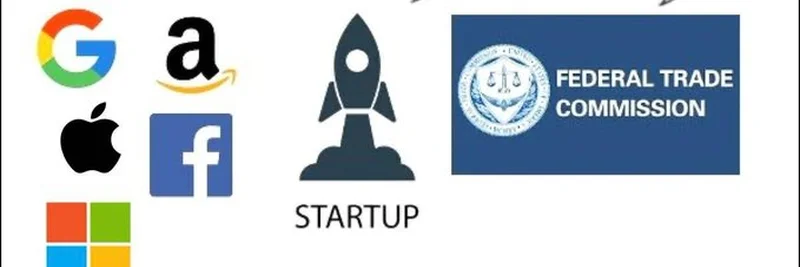Hey there, meme enthusiasts and blockchain buffs! If you’ve been keeping an eye on the latest tech drama on X, you might’ve stumbled across a thought-provoking thread by Balaji (@balajis) on July 14, 2025. In a tweet that’s sparked some serious conversation, Balaji dives into how antitrust regulations—those rules meant to keep big companies in check—are actually hitting startups harder than the tech giants they target. Let’s break it down and see what this means for the future of innovation, especially in the wild world of blockchain and meme tokens!
The Big Idea: Regulations Backfiring on Startups
Balaji’s key point in this tweet is a bit of a plot twist: people think antitrust laws are designed to hurt Big Tech, but they’re actually choking startups. When big companies like Google or Amazon can’t easily acquire promising startups due to strict regulations, they don’t just sit back—they fight harder to stay on top. This “fight to the death” means less room for new players to break through, which is bad news for the entrepreneurial spirit that drives tech forward.
Think of it like this: acquisitions are often a startup’s golden ticket—a big payout that funds the next wave of innovators. But with regulators stepping in, those exits are drying up. Balaji argues this cuts off the cash flow that keeps the startup ecosystem thriving. For blockchain practitioners, this could mean fewer resources for projects like meme tokens, which often rely on early funding and community-driven growth.
Why This Matters for the Tech Ecosystem
So, why should you care? Well, startups are the lifeblood of innovation. They’re the ones experimenting with crazy ideas—like decentralized finance or quirky meme coins—that could change the game. When acquisitions become a regulatory nightmare, it’s not just the founders who lose out; it’s the whole industry. Balaji points out that each big acquisition can fund “1000+ startup piranhas,” creating a ripple effect of new ventures. Without those deals, the pool of fresh ideas shrinks, and Big Tech’s dominance grows even stronger.
In the context of meme tokens, this could slow down the development of fun, community-led projects. Imagine a startup building the next big meme coin getting stuck because a Big Tech acquirer can’t step in due to red tape. That’s a missed opportunity for both the team and the blockchain community!
The Regulatory Catch-22
Balaji’s thread digs into the history, noting that mergers and acquisitions (M&A) used to be smooth sailing for decades. But then came the “Biden-era regulatory assault,” led by figures like Lina Khan at the FTC. Even with a new administration, the anti-Big Tech stance lingers, creating what he calls a “dumb dance” of legal workarounds. For example, in the Windsurf AI case mentioned earlier in the thread, Google had to leave $100M for employees but couldn’t call it an acquisition outright—leaving the team to figure out the payout themselves.
This regulatory capture—where rules end up favoring the big players—creates a moat around Big Tech. Smaller companies struggle to compete, and the innovation cycle slows down. It’s a catch-22: the laws meant to foster competition might just be entrenching the giants.
What This Means for Blockchain and Meme Tokens
For those of us at Meme Insider, this hits close to home. The blockchain space thrives on disruption, and meme tokens are a perfect example of grassroots innovation. If antitrust rules make it harder for startups to get acquired, the funding for experimental projects could dry up. That means fewer wild ideas turning into the next Dogecoin or Shiba Inu.
Balaji suggests a fix: “re-legalize acquisition” and let free markets decide. Consensual acquisitions—where both sides agree—could bring back the flow of capital to startups. It’s a call to action for regulators to rethink their approach and prioritize the little guys over punishing the big ones.
A Visual Takeaway
Check out this image from Balaji’s thread that sums up the frustration with regulatory overreach:
It’s a cheeky nod to how the system forgets to ask startups what they think about these rules!
Final Thoughts
Balaji’s thread is a wake-up call for anyone in tech, especially in the blockchain and meme token space. Antitrust regulations might sound like a win for fairness, but they’re accidentally building a fortress around Big Tech while leaving startups out in the cold. If you’re a founder, investor, or just a meme coin fan, this is a trend worth watching. Share your thoughts in the comments—do you think regulators should loosen up, or is this the price we pay for keeping giants in check?
Keep exploring the latest in blockchain and meme tokens with us at Meme Insider. We’re here to help you navigate this ever-changing landscape with a knowledge base packed with insights!


